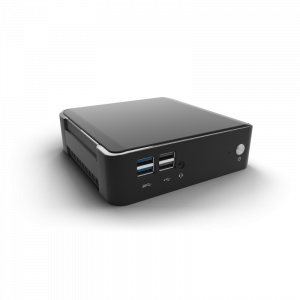DOJ Antitrust Lawsuit: Apple Sells Access to iOS End Users to Google!
Latest posts by Rex M. Lee (see all)
It was reported by Mac Daily News that Alphabet (Google) pays Apple $18 billion to $20 billion per year for Google to be Safari’s default search engine according to information presented during the Department of Justice Antitrust lawsuit.
This means that Google extends its control over the search engine market to include Apple iOS end users who may believe they are avoiding Google surveillance business practices by using Apple iOS devices instead of Google Android devices.
When you calculate Apple’s iPhone customers who use Safari into the total, Google has well over 90% of the web browser market by way of this deal between Alphabet and Apple.
Brokerage firm Bernstein had this to say to the Register: “We believe there is a possibility that federal courts rule against Google and force it to terminate its search deal with Apple,” said Bernstein in the report sent to The Register. “We estimate that the ISA is worth $18B-20B in annual payments from Google to Apple, accounting for 14-16 percent of Apple’s annual operating profits.”
What is surprising about this revelation is the fact that Apple and Alphabet are supposed to be competitors yet at the same time they collude to remain in control of markets that they can monopolize either by themselves or via strengthening their duopoly.
No tech startup can compete on a level playing field when monopolistic multinational corporations can control markets by way of secret deals where their products, such as operating systems, apps, social media platforms, and web browsers, that are preinstalled into billions of devices such as smartphones, tablet PCs, connected products, SmartTVs, and PCs.
Competition and innovation is further crushed when these monopolistic tech giants collude through business deals worth billions to have their apps, social media platforms, and web browsers distributed under a different brand name such as the case that has been exposed by the DOJ Google antitrust lawsuit regarding the Apple Safari Google web browser revelation.
The market does have a growing choice in Purism products, and Purism has long stated the three approaches to change the future of technology for the better is through activism, legislation, and market choice.
Purism does not employ predatory surveillance and data mining business practices, which is the root to all security and privacy threats posed by Google, Apple, and Microsoft.
For people who want to escape predatory surveillance business practices and technology employed by Google, Apple, and Microsoft, they will need to adopt secure and private decentralized options such as smartphones, tablet PCs, laptop PCs, and servers supported by PureOS, a non-Android Linux OS that are not supported by an intrusive targeted advertising business model.
The Liberty Phone by Purism has Made in the USA electronics for a secure supply chain while also running PureOS. Purism also manufactures the Librem 14 Laptop PC, Librem 11 Tablet PC, Librem 5 Phone, and Librem Servers all supported by PureOS and run secure apps where the source code is decentralized and peer-reviewable.
Purism Products and Availability Chart
| Model | Status | Lead Time | ||
|---|---|---|---|---|
 | Librem Key (Made in USA) | In Stock ($59+) | 10 business days | |
 | Liberty Phone (Made in USA Electronics) | In Stock ($1,999+) 4GB/128GB | 10 business days | |
 | Librem 5 | In Stock ($799+) 3GB/32GB | 10 business days | |
 | Librem 11 | In Stock ($999+) 8GB/1TB | 6+ weeks | |
 | Librem 14 | Out of stock | New Version in Development | |
 | Librem Mini | Out of stock | New Version in Development | |
 | Librem Server | In Stock ($2,999+) | 45 business days | |
 | Librem PQC Encryptor | Available Now, contact sales@puri.sm | 90 business days | |
 | Librem PQC Comms Server | Available Now, contact sales@puri.sm | 90 business days |
Recent Posts
Related Content
- A Quarter Century After Cyberselfish, Big Tech Proves Borsook Right
- PureOS Crimson Development Report: November 2025
- Purism Liberty Phone Exists vs. Delayed T1 Phone
- PureOS Crimson Development Report: October 2025
- Landfall: A Case Study in Commercial Spyware


